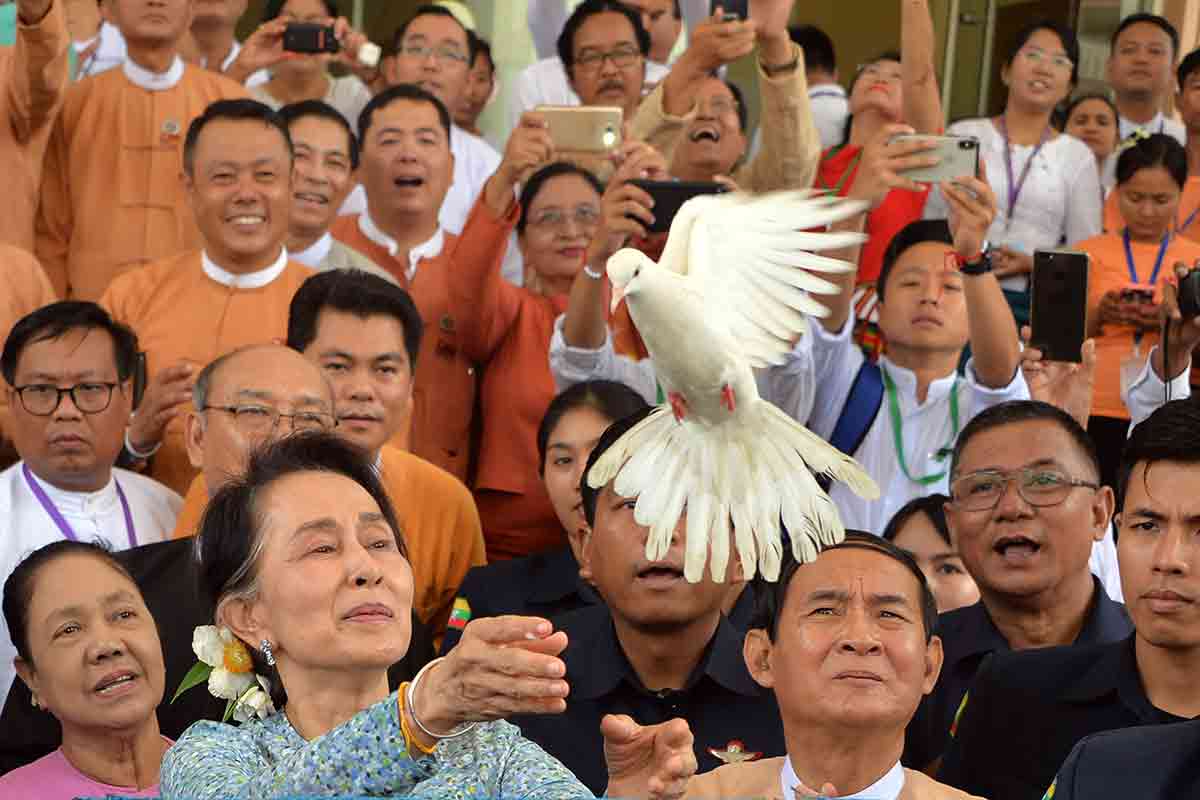Last week, Myanmar seemingly made steps towards being accountable for the Rohingya crisis that has been ongoing for the past year. The country established a new Commission of Inquiry to investigate allegations of human rights abuses in the Rakhine state. This move is a long time coming as criticism of the government’s inaction in the crisis has been growing.
The Commission of Inquiry will comprise of four people – two Burmese and two international members. The two international members are Rosario Manalo, former Philippine deputy foreign minister and Kenzo Oshima, Japan’s former ambassador to the United Nations (UN). Meanwhile, the two locals are former chair of Myanmar’s constitutional tribunal U Mya Thein and a former senior official at UNICEF, Aung Tun Thet.
“The Independent Commission will investigate the allegations of human rights violations and related issues, following terrorist attacks by the ARSA,” the office of President Win Myint said, referring to the Arakan Rohingya Salvation Army (ARSA), the Rohingya armed group which the government blames for sparking the crackdown on the Rohingya.
The Rohingya crisis began in August last year, after a small group of ARSA militants attacked a police post, killing 12 members of Myanmar’s security forces. As a result of this, the Myanmar military went on a massive crackdown targeting the Rohingya which led to nearly 700,000 Rohingya having to flee over the border to neighbouring Bangladesh.
The military crackdown by the armed forces of Myanmar – better known as the Tatmadaw – has been fiercely criticised the world over for its atrocities against the Rohingya. Some have even called their actions as “ethnic cleansing” or “genocide”.
Yanghee Lee, Special Rapporteur on human rights in Myanmar told the UN Human Rights Council in Geneva earlier this year that the situation in Myanmar amounts to genocide.
“I am becoming more convinced that the crimes committed following 9 October, 2016 and 25 August, 2017 bear the hallmarks of genocide and call in the strongest terms for accountability,” he said.
Scepticism
Critics and human rights activists have raised doubts over what the Commission of Inquiry would actually achieve. Some have even questioned the credentials of some of the members of the panel. In a report by a local daily in Myanmar, it said that Rosario Manolo has a reputation to play the “get along to go along” game in the ASEAN Intergovernmental Commission on Human Rights.
 Source: Various sources
Source: Various sources
The question of impartiality among members is also something to worry about. In an interview with a Bangladeshi paper, Aung Tun Thet denied that Myanmar had been involved in ethnic cleansing.
These doubts have raised serious concerns that any findings from the investigation into human rights abuses in the Rakhine state could be whitewashed. In January this year, veteran United States (US) diplomat Bill Richardson resigned from a panel set up by the government to advise on the Rohingya crisis citing a “whitewash”. He also said in an interview with Reuters that he did not want to be part of “a cheerleading squad for the government”.
Others have called the inquiry a “political gimmick”.
"Given the weight of evidence collected by Amnesty International, the UN and the media, this Commission of Inquiry is tantamount to a rude gesture, not a genuine inquiry," said Yangon-based analyst David Mathieson.
The fact that Myanmar has refused to engage or respond to international institutions over the crisis have caused many to question the sincerity of the inquiry. Myanmar has consistently denied human rights observers from various institutions to carry out fact-finding missions in the Rakhine state. Last year, State Councillor Aung San Suu Kyi rejected a decision by the UN’s rights council to investigate abuses by the Tatmadaw.
Even if the benefit of the doubt was given to the Commission of Inquiry and their investigation revealed that the military or the government was responsible for human rights abuses, the question is then, what next? It is very doubtful that the Myanmar government or the military would reform or take responsibility for its actions given how it has responded to allegations – with overwhelming evidence – from the past.
Some see Myanmar’s decision to establish a Commission of Inquiry as a tactic to appease its critics and to buy some valuable breathing space for the government. However, this has backfired, since many are sceptical of the inquiry resulting in more eyes on Myanmar than ever. The best way for the country to actually appease its critics is to accept responsibility for the crisis and to carry out effective reforms to end it in the best way possible.
